Written off by history as a promiscuous playboy with a fatal taste for martinis and morphine, there was an astonishing other side to the late Queen’s uncle, the Duke of Kent.
The Daily Mail can reveal today the cloak-and-dagger part the duke played as a rogue secret agent in the run-up to the Second World War.
His eldest brother the Duke of Windsor is remembered for cosying up to Adolf Hitler, but Georgie, as he was known, took the opposite view. The Nazis were a threat to freedom and in 1938 he set out to do what he could to stop the war.
Defying the orders of the then prime minister Neville Chamberlain, the duke engaged in secret talks with a high-ranking Nazi, Prince Philipp of Hesse.
It helped that Philipp was the duke’s cousin by marriage – who, despite his Nazi credentials, had become alarmed at the extremist policies of Hitler’s right-hand man Joachim von Ribbentrop. Philipp too wanted peace before the world exploded.
Georgie Kent was a highly-motivated secret agent. He was encouraged by his brother King George VI to engage with Philipp on the basis of ‘if the politicians can’t sort out a peace agreement, then let the royals cousins show them how do it’.
The historian Tom MacDonnell agrees: ‘George VI was haunted by the memory of the Great War. Repeatedly he offered to make his own appeal to Hitler [believing] that kings and princes still had a meaningful part to play in diplomacy – as if nothing had happened to the map of Europe since 1914, when the Continent had been the private domain of royal cousins.’
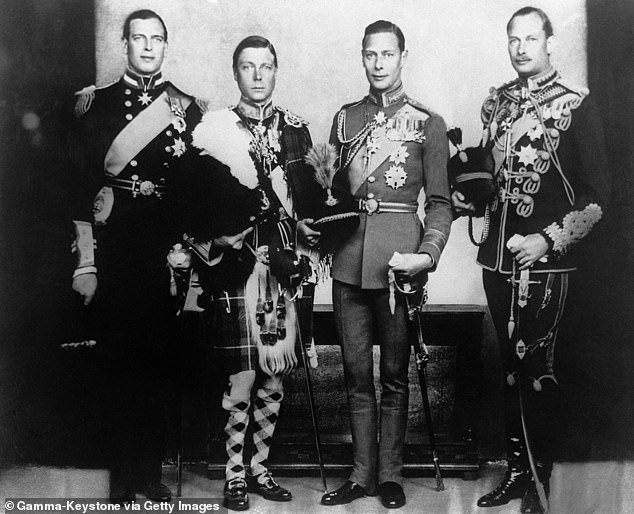
George VI was haunted by the memory of the Great War
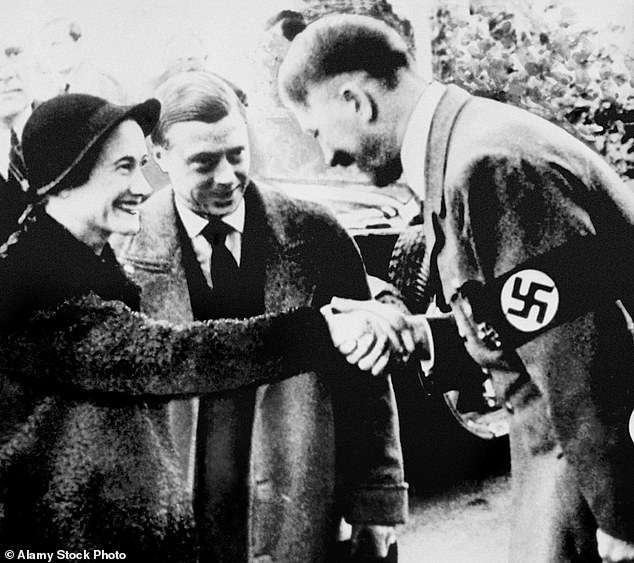
The Duke and Duchess of Windsor meeting Adolf Hitler in Munich in 1937
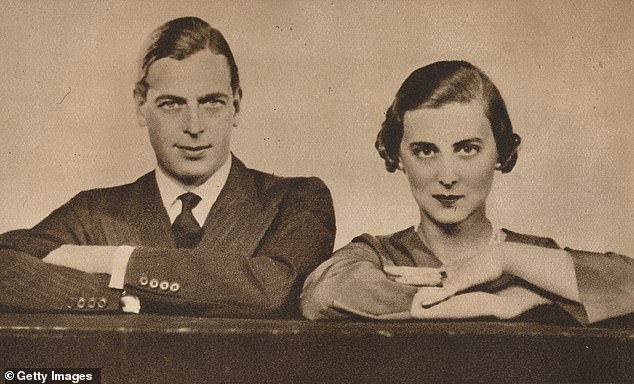
It was the fate of his wife Princess Marina’s Europe-based family, likely to bear the brunt of an armed Nazi assault much earlier in the war, which drove him
The Duke of Kent was a patriot who believed in his country. But – possibly even more important than his point of view – it was the fate of his wife Princess Marina’s Europe-based family, likely to bear the brunt of an armed Nazi assault much earlier in the war, which drove him.
Coolly elegant Marina – more royal than the British royals through her line of descent from the tsars of Russia and the kings of Greece – was also closely connected to other countries and their ruling houses.
Her sister Olga was married to the prince regent (de facto king) of Yugoslavia, while her other sister Elizabeth was married to a German aristocrat Count Toerring-Jettenbach. She was related to the queen of the Belgians, and was a first cousin of Prince Philip, future husband of Queen Elizabeth II.
So, increasingly alarmed at the speed with which Europe was crumbling, Georgie was introduced to Baron William de Ropp, a shady figure and possible double agent whose German contact was Nazi leader Alfred Rosenberg, later hanged for his part in wartime atrocities.
Ropp and Georgie’s meetings were important, frequent, and very hush-hush. Professor Jonathan Petropoulos, an expert on German royals and the Nazi regime, observes: ‘The Duke of Kent obviously had a very real influence on political events. He was uniquely placed to act as an intermediary between high-ranking Nazis and the movers and shakers of British society. It was an opportunity he seemed to relish.’
The upshot was two crucial meetings. In July 1938 Georgie and Philipp had a private conversation in Rome. Ostensibly there for the funeral of Queen Marie of Romania, they were closeted away in lengthy private discussions. Then the two royals met again in Florence a year later – against prime minister Chamberlain’s wishes.
‘Chamberlain wanted to constrain the royals, because the situation in Europe was too complicated and unsettled to entrust negotiations to amateurs such as the duke and the prince, and dismissed a suggestion by King George VI that they use Prince Philipp,” wrote Petropoulos.
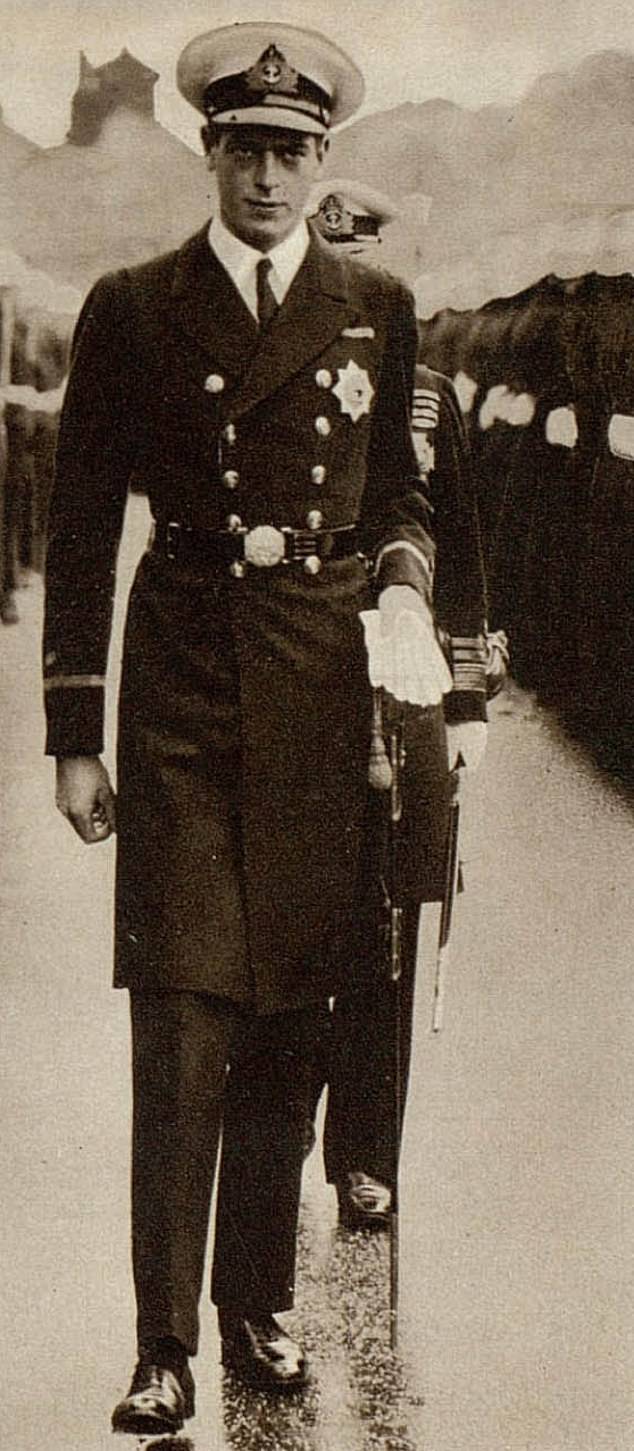
In July 1938 Georgie and Philipp had a private conversation in Rome. Ostensibly there for the funeral of Queen Marie of Romania, they were closeted away in lengthy private discussions
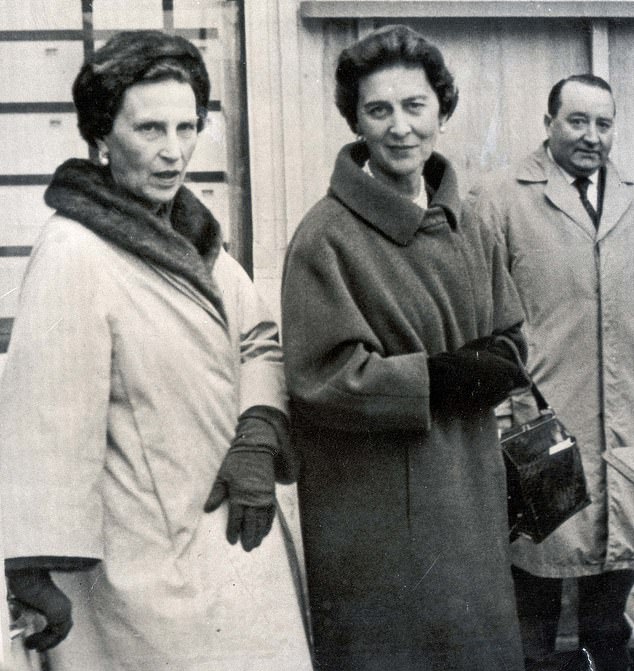
Coolly elegant Marina – more royal than the British royals through her line of descent from the tsars of Russia and the kings of Greece – was also closely connected to other countries and their ruling houses. Her sister Olga was married to the Regent (de facto king) of Yugoslavia
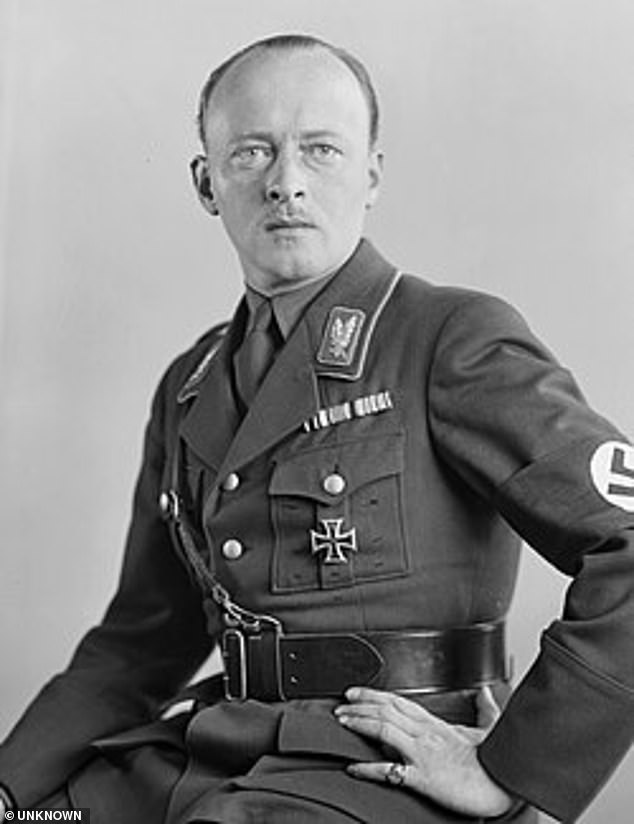
Defying the orders of the then Prime Minister Neville Chamberlain, the duke engaged in secret talks with a high-ranking Nazi, Prince Philipp of Hesse
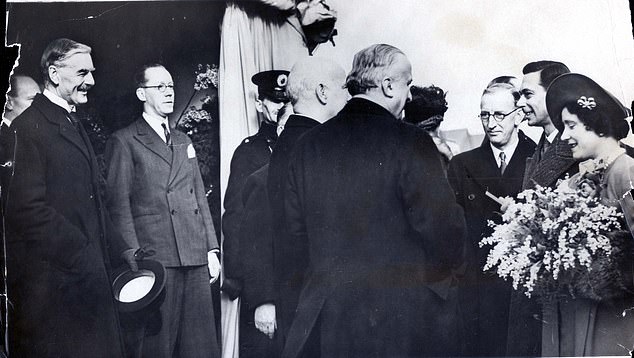
The king and queen leaving the Austin aircraft factory at Longbridge during a tour of Birmingham in 1939, accompanied by then prime minister Neville Chamberlain, left
But Georgie went ahead anyway and, with the war now just weeks away, met Philipp in Florence in July 1939. ‘It directly contravened the instructions of the prime minister,’ observed Petropoulos. Georgie made it clear to his cousin that Britain would declare war if the Nazis entered Poland, and Philipp took this information back to a meeting with Hitler, at which Ribbentrop was also present.
The difficulty for British politicians with all this clandestine activity was, what was a legitimate path to peace, and what was appeasement?
There are no official records of what was said between the cousins during their confidential meetings. Spymaster Frederick Winterbotham, who had spent the pre-war years recruiting spies across Europe, was the shady Baron de Ropp’s ‘control’ during this period. In 1969 he published a book, Secret And Personal, which devoted a chapter to the Ropp-George meetings.
But by the time a second edition was published the chapter had been dropped, apparently at the request of Buckingham Palace. Even 15 years after the war’s end – and 17 years since George’s tragic death in an aeroplane crash – the contents were deemed inappropriate.
For a royal to disobey their prime minister was one thing. For the royal to do so as war approached was far worse. That George may, in the course of his discussions, have passed on highly classified secrets – either inadvertently or knowingly – to a man who soon would fly to Hitler’s side was unthinkable.
Which is why the world has never learned about the Duke of Kent, Secret Agent. The records are either locked up or destroyed, and we will never know whether he did a good thing, or a bad thing, in his personal efforts to secure peace.
And so all that remains of poor Georgie is the memory of a playboy without a purpose.